A Duty of Care
An Open Letter to the British Humanist Association

There's something missing from the BHA's recent briefing about the state funding of Steiner schools, and we hope that they will respond to this letter by “engaging in debate rationally, intelligently and with attention to evidence”, something they strive to embody.
Although this omission is very obvious to anyone versed in the problems within Steiner education, it's puzzling that the usual critics of that movement haven't pointed it out. Some have actually stated that the BHA's document is “comprehensive”.
What's missing is any mention of the problem of unchecked bullying.
Of course, the public image of Steiner/Waldorf education is such that those who haven't experienced it would go as far as to deny the fact that pupils in Steiner schools experience any sort of bullying whatsoever. As a Times journalist told us recently, “What evidence do u have of bullying in Steiner schools? We had many come to our school because they'd been bullied in state schools”.

But we're not talking about the usual type of bullying every school has to deal with, but with bullying that is treated through pedagogy, and which teachers are aware of but do not deal with or stop, quite a hard concept to grasp, let alone expose.

According to Pavan Dhaliwal, head of public affairs, the BHA's focus lies “within the ideology and the pedagogy” of Steiner education.
The BHA have used information gathered from private Steiner schools to back up some of their concerns about State funded schools, which is justifiable when dealing with pedagogical matters, Pavan explained. Therefore, since reports of unchecked bullying from private Steiner schools were left out of their briefing, one can only surmise that the BHA doesn't believe that the unchecked bullying experienced in Steiner has anything to do with its pedagogy, especially since the experts the BHA drew on when compiling their report apparently didn't mention it. Why else would the problem of pedagogical unchecked bullying not appear in their 15-page report, especially when Pavan was so clear that “we have to adhere to whatever's in our policy position”.
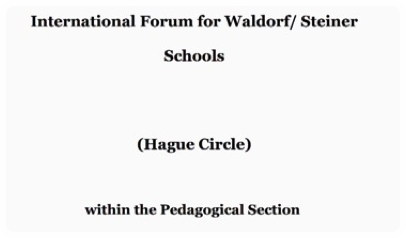
But its relevance is conclusively demonstrated in a document from the pedagogical section of Dornarch, the Steiner/Waldorf World Headquarters, which states that one of the marked characteristics of a Waldorf school is that “pedagogical methods [will be] used in dealing with discipline”.
But what are those pedagogical means? Unable to as yet get an answer from Dornach, we've looked at the literature, essays and lectures Rudolf Steiner and his followers left behind. There’s a lot to sift through, but here is a sample of the Steiner movement's belief related to karma and discipline:

• We found that Rudolf Steiner was a profound believer in karma. In “The Destinies of Individuals and of Nations” he talks about a child who was killed in a road accident, “The karma of this child was such that the ego, to put it bluntly, had ordered the van and the van overturned to fulfil the child's karma.”
• Part of a prayer from Adam Bittelson states “May the events which seek me come unto me”, clearly implying that you can’t really escape your fate so you might as well embrace it. According to a knowledgeable source, within Anthroposophy, Adam's words are as important as Rudolf Steiner’s because they've been accepted as coming from his “spiritual stream”.
• An article in a Steiner school newsletter said: “children who are regularly victimized by bullies may also be engaging in addictive behavior.”
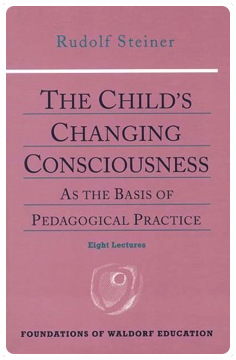
• Rudolf Steiner was a firm believer in temperaments, an ancient conception, dating back to the ancient greeks, which states that there are basically four personality types: sanguine (pleasure-seeking and sociable), choleric (ambitious and leader-like), melancholic (analytical and quiet), and phlegmatic (relaxed and peaceful).
Lecture Eight of "The Child’s Changing Consciousness” explains how a teacher could deal with a group of choleric children. It’s also clear from this passage that cholerics are considered to be the natural physical bullies of the group: “it has a salutary effect if one seats choleric children together in one corner of the classroom, giving a certain relief in this way to the rest of the class, because the teacher is freed from having to constantly discipline them. Choleric children can’t help pushing and hitting each other. If they now find themselves suddenly at the receiving end, this in itself produces a thoroughly pedagogical effect, because the ones who do the pushing and shoving, goading others into retaliating, are being “shaped up” in a very direct way.”
All of this information, and more besides, is easily accessible online, and certainly helps to explain the mountain of complaints the world over about Steiner schools failing to act when bullying or other abuse is reported to them. If they think it's the child's karma, why interfere?
There is evidence of Aberdeen Waldorf School closing because of unchecked bullying, the Rudolf Steiner Schule Aargau in Switzerland, which is accused of being a violent cult, Rebecca Coleman's testimony where a teacher bullied her pupil, Kate Christensen’s account of sexual abuse at Green Meadow Waldorf School, dramatised in Blue Plate Special, and the resulting damning investigation which ensued, the Employment Tribunal ruling in the case of Sawfoot v Norfolk Initiative Steiner School, and strings of anecdotal reports, including the nearly 600 that Pete Karaiskos has gathered on his site.

Many critics spend a lot of time explaining how the pedagogy, the karma and the bullying are connected, and of grave concern for the welfare of children. Our own settlement with the Titirangi Rudolf Steiner School through Human Rights, whose statements lay out the damaging mechanisms of unchecked bullying, has been online for over a year now, so it's not like there isn't a vast body of evidence to draw from, but it does show how hard it is for someone to spread the information they have gathered online on their own: despite all of these peoples' efforts, the BHA aren't apparently aware of them.
Pavan told us that if we had the evidence, we had “a duty of care to put that forward”, although she wouldn't alter her document or even add an appendix or a footnote to correct her mistake. If it was sent to her, she would merely pass it on to another organisation.

So who's reneging on their duty of care? Is it really the experts for not mentioning it to the BHA? Unlikely, because Richy Thompson, the BHA's Campaigns Officer (Faith Schools and Education), told a concerned person that “I have heard many people say that bullying is an issue in Steiner schools, although it's not something I've looked into”. So is it the BHA for insisting, whilst admittedly not even looking at the evidence, that unchecked bullying in Steiner has nothing to do with the pedagogy and the pseudoscience that underpins it? The BHA briefing mentions anthroposophy, karma, reincarnation, pseudoscience, but bullying? Not once.
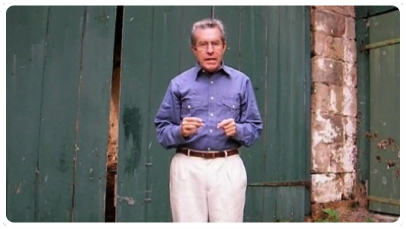
It's far from easy to deal with bullying, but when it's part of a school's belief system, it's obviously even harder. Eugene Schwartz's video on bullying makes that perfectly clear. Eugene is a staunch Steiner proponent, teacher and lecturer. His video highlights what many critics and families have described: bullying, in full view of a teacher, which is not interfered with. The denouement, as it were, is that this bullying incident turns out to be merely kittens play-fighting. The inference is clear: what parents think is bullying is merely play, and teachers know best.
By wiping the pedagogically unchecked bullying, which stems from a belief in karma and pseudoscience, from their briefing about the pedagogy and pseudoscience of Steiner education, the BHA have created their own version of that Eugene Schwartz video: they have actually helped to further disguise the pedagogical nature of unchecked bullying in Steiner.
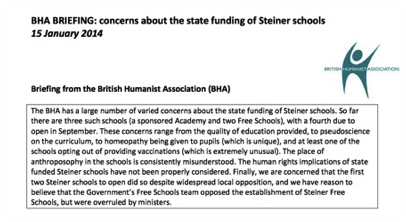
Pavan told us that “it's not misinformation. We've not put anywhere in that document that "there is no bullying in those schools”, then you could argue to me that misinformation has been put out there.” This argument, that you cannot misrepresent by omission is concerning, because how can parents be fully informed if potentially crucial information is kept from them? Isn't that the whole reason why the BHA have publicly forced the Department for Education to release documents they’d rather keep away from pubic scrutiny?
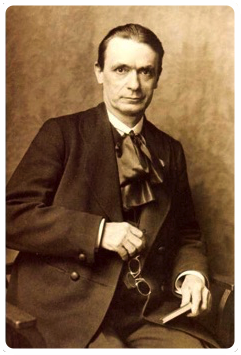
Why pedagogically justified unchecked bullying is of no concern to those on such a firm platform of fully informing parents about pedagogical pseudoscience in Steiner is far from clear. Pavan sounds incredulous when she says “do you think that's going to be the one thing that would tip people over the edge?” As Richy puts it, they “had plenty of issues to go on (hopefully enough to put any sensible parent off)”.
It's hard to imagine why such evidence, of pedagogically sanctioned abuse, would not serve the BHA's purpose of demonstrating how inappropriate such a pedagogy is for public funding. Can they really think that bullying, even the pedagogical karmic sort, isn't really such a big deal, and far less of a problem anyway than teaching that the heart is not a pump?
Is the British Humanist Association comfortable with the obvious effect that their omission may have of sending children of "not-sensible-enough parents" to experience karma-justified bullying?
Wouldn't it have been better to genuinely offer parents all the relevant information to safeguard the wellbeing of their children in the first place? At the very least, having been made aware of a potentially harmful omission, wouldn't it adhere more to their values and guidelines for the British Humanists to robustly engage with it in a transparent public debate, instead of threatening those who've flagged it up with the words “if you in any way misquote me, then you will hear from my lawyers”?
Pavan Dhaliwal and Richy Thompson’s photos were taken from the BHA’s site.
The photo of Rudolf Steiner was taken from The Philosophy of Freedom website.
